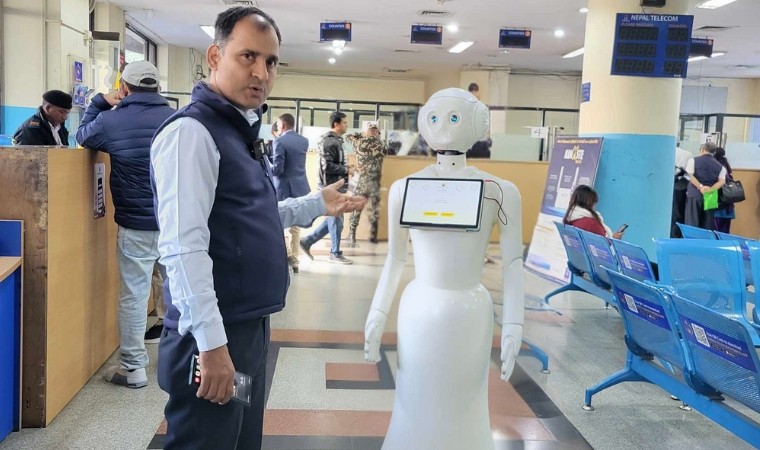News Updates

- Dr. Ramhari Subedi, Washington DC -
Seventy percent of the world's population will be living in cities in coming years which covers less than 2% of the earth's surface. Cities have been so challenged, and the trend continues to grow. This creates many issues: pollution, infrastructure, accents traffic, congestion, mobility, safety, and the health of residents are only a few examples.
Cities and municipalities in developed countries want to really understand how technology and intelligent connectivity can help them to resolve real world glitches like not having enough water sanitation, transportation, traffic bottleneck, the ability to communicate and manage their overall network. It all starts with understanding the people and changing the way they think about their own sectors.
You are no longer the lighting department, but you are becoming the connectivity department because that light thrust needs to do more than just light.
If I were to design a city, it would be intelligent enough to basically work and act together with its people along with the government. A smart city is about the fact that you have got data and information that is being shared across departments, as well as back to the citizens and then back again, ultimately around the globe.
It is a circling system which makes the whole network even more efficient, effective, and sustainable for many generations to come. It is a fact that you have intelligent connectivity combining with human behavior that is really super transformative to really how we are going to live our lives.
Do you know how smart your city is?
The chances are that your city is smarter than before, and it is getting smarter by the year. This trend will evolve into a fast pace, towards building smart cities in a few years to come.
Many governments around the globe are racing to infuse technologies into just about every aspect of its city’s operations, including public transportation, water and power supplies, sanitation and solid waste management, efficient urban mobility, government, and citizen participation. It does this by using every buzzword imaginable from big data, artificial intelligent, and the internet of thing.
How does the smart city work?
The government deploys systems that can tell when people are smoking in prohibited zones or littering from high rise buildings. Many companies have launched their own smart nation programs in cities and will add more smart devices such as cameras where the government can effectively monitor crowd density, cleanliness of public areas and even the exact movement of every locally registered vehicle.
Much of the collected data will be fed into an online virtual platform that gives the government access to how the city is functioning in real time which could help the government to predict how crowds might react to an explosion in a shopping mall, a playground, or in a public park as well as how infectious diseases can spread.
You can do things like pay a speeding ticket, pay bills and other transactions by using the same app. Installing a smart data center in a city allows its citizens to easily send packages, find the nearest ATM, renew vehicle registration, track visa status and report violations to the city police and so much more.
Smart grids linked to the data center could save billions of dollars a year in energy costs such as smart streetlights and lighting systems in private homes and businesses. Automated waste management is another benefit as it not only lowers noise pollution from garbage trucks, but also lowers costs and keeps odors away.
The development and combination of new technology, such as the internet of things and artificial intelligence, offer a multifaceted solution. Smart cities are hyper connected, and technologically equipped to improve the lives of their residents in many countries.
Juniper research estimates that by 2025 cities can save billions of dollars by making their cities smart. The global smart city market is estimated to attract 50 billion dollars by 2030.















